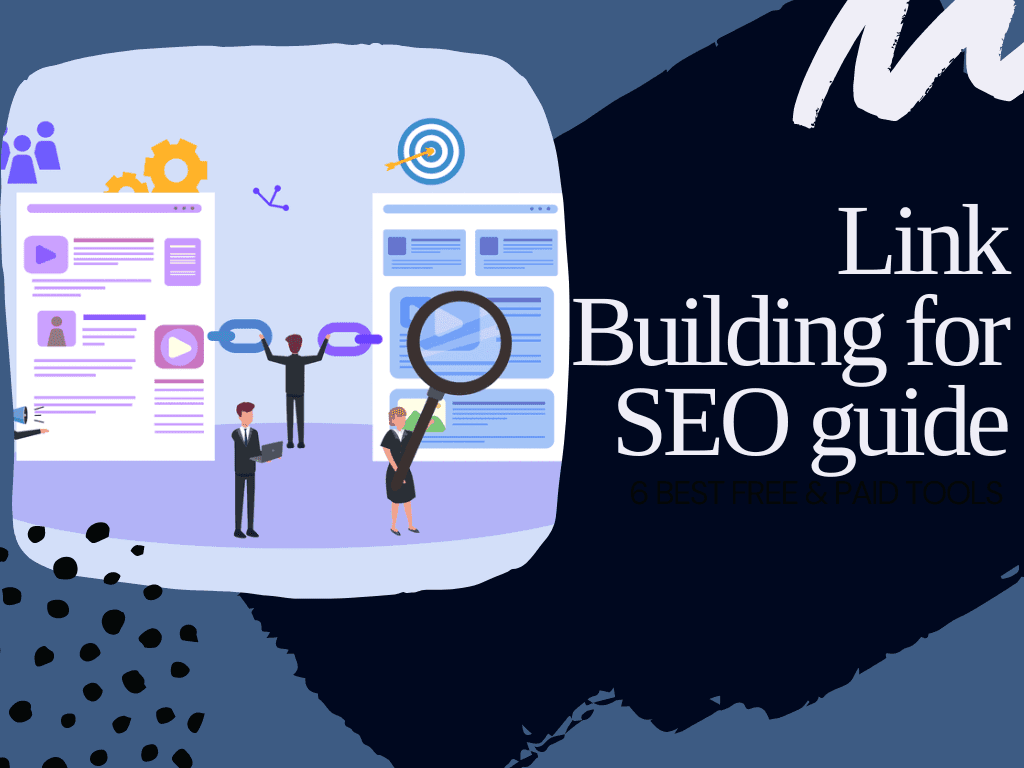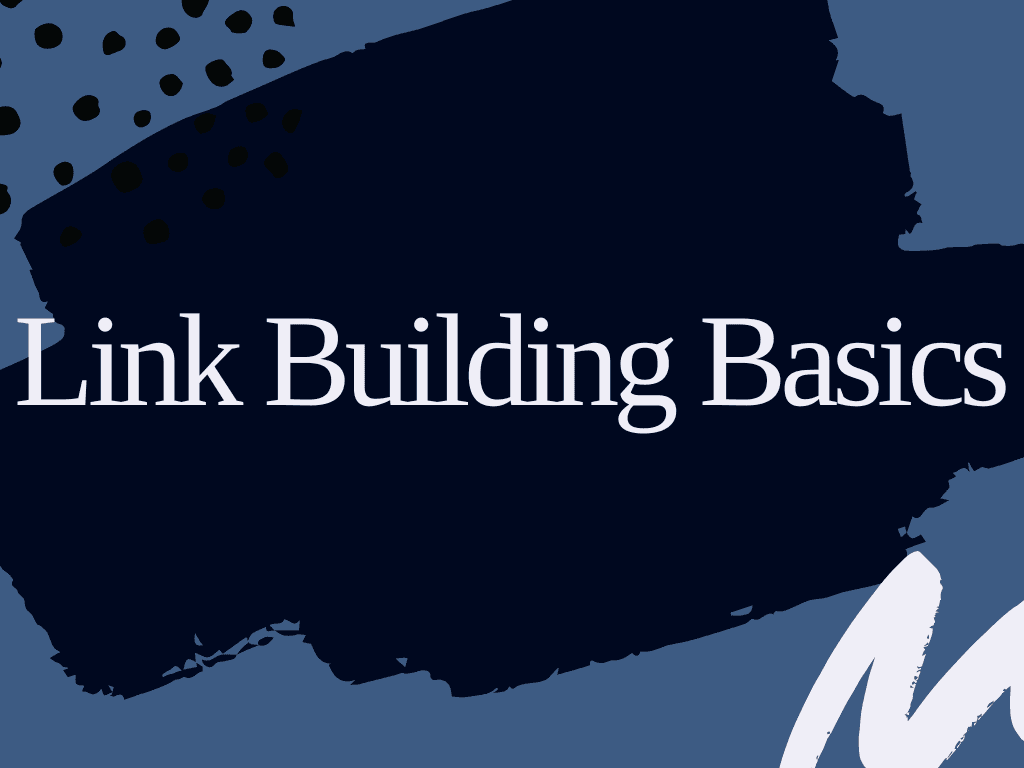If you're familiar with search engine optimization (SEO), you know that backlinks are a crucial factor in achieving a higher search engine ranking for your website. But building high-quality backlinks that help improve your SEO can be a challenging task. In this article, we'll dive into the basics of link building and provide you with actionable tips to get started.

Link building is the process of acquiring backlinks, which are links from other websites that point to your website. Search engines consider backlinks as a vote of confidence for your website, indicating that other websites find your content valuable and relevant. The more high-quality backlinks you have, the higher your website will rank on search engine results pages (SERPs).
Think of each backlink as a recommendation. When a reputable site links to your content, it tells Google: "This page is worth visiting." That signal, accumulated over time, is one of the strongest ranking factors in modern SEO.
Link building is an essential component of SEO for several compelling reasons:
Search engines like Google use backlinks as one of the key ranking factors to determine the relevance and authority of a website. Sites with high-quality backlinks consistently outrank those without.
Backlinks from high-traffic websites drive referral visitors directly to your site, resulting in more potential customers discovering your content and products.
A strong backlink profile builds your domain authority over time, making it easier for all your pages to rank — not just the ones receiving links directly.
When authoritative websites link to you, it builds trust with both search engines and real users, establishing your brand as a credible source in your niche.

There are two types of backlinks: dofollow and nofollow. Understanding the difference is essential for building a healthy link profile.
These are links that search engines recognize and use to determine your site's authority and relevance. Dofollow links pass on "link juice," which directly helps your website rank higher in SERPs. These are the most valuable type of backlink.
These links have a nofollow tag that tells search engines not to count the link as a direct vote of confidence. While they don't pass link juice, nofollow links can still drive valuable referral traffic and contribute to a natural-looking link profile.
It's important to have a healthy mix of both dofollow and nofollow backlinks, as this looks more natural to search engines and improves your overall SEO.
There are three main ways you can earn backlinks. Each approach has its own merits, and a well-rounded link building strategy typically combines all three.
Asking for links is when you actively contact a website and ask them to link to yours. This is a proactive approach that works best when you have genuinely valuable content to offer.
You can ask them to link to:
Adding links refers to going to another website and manually adding your link there. For example, you can add links to:
Note: Manually added links are often from low-quality sources. Google doesn't give them much weight because you're essentially endorsing yourself. These links won't actively hurt you, but they carry far less weight than editorially given links.
When you earn links, other websites link to yours without you asking them to. This is the gold standard of link building — it happens naturally when you create content that is genuinely useful, original, or interesting enough that people want to reference it.
Content types that tend to earn links organically include visual assets (infographics, charts, diagrams), original research and data, online tools and calculators, and in-depth guides and tutorials.
Use Optiwing's AI Content Brief and Blogpost Writer to produce high-quality, in-depth content that naturally earns backlinks. Start with a structured brief, then generate comprehensive articles your audience will want to share.
The foundation of any successful link building campaign is exceptional content. No outreach strategy can compensate for mediocre content. Here's how to create content that naturally attracts backlinks:
Creating valuable, informative content is the most effective way to attract backlinks. Other websites in your niche are far more likely to link to genuinely useful resources. Google's Helpful Content Update further rewards content that demonstrates first-hand expertise and real value.
Original research, industry surveys, and data-driven studies are among the most linkable content types. When you publish unique data or insights, other creators will naturally cite your work as a source.
Infographics, charts, diagrams, and other visual content are highly shareable and easy for other websites to embed with a link back to your site. Visual assets often get shared across social media too.
Online tools, calculators, and interactive resources naturally attract links because they provide ongoing utility. People bookmark and share tools they find genuinely helpful.
The key to earning links is to think about what makes content worth referencing. Ask yourself: would another writer in my industry want to cite this as a source? If the answer is yes, you're on the right track.
Not sure what content to create? Use Optiwing's Keyword Discovery Tool to uncover high-potential topics in your niche that people are actively searching for — and that competitors haven't covered well.
Beyond creating great content, here are proven tactics you can use to actively build high-quality backlinks:
Guest blogging involves writing a blog post for another website in your niche in exchange for a backlink to your website. This is a win-win situation — the website gets free, high-quality content, and you get a valuable backlink plus exposure to a new audience.
Broken link building involves finding broken links on other websites and suggesting your content as a replacement. This not only helps the website fix their broken links but also provides you with a valuable backlink. It can be more time-intensive, but the conversion rate is often high because you're solving a problem for the site owner.
Analyzing your competitors' backlink profiles can help you identify potential link opportunities. You can reach out to websites that link to your competitors and suggest that they link to your website as well — especially if your content is more comprehensive or up-to-date.
Tools like Optiwing's SERP Checker can help you analyze which pages are ranking for competitive keywords, giving you insight into what kind of content earns links in your niche.
Social media platforms are great for promoting your content and attracting backlinks. By sharing your content on social media, you can reach a wider audience and potentially get other websites to link to your content. Message boards specific to your niche, Facebook groups, LinkedIn communities, and industry forums can all help drive traffic and build awareness of your linkable content.
Platforms like Help a Reporter Out (HARO) connect journalists with expert sources. By providing expert quotes and insights, you can earn high-authority backlinks from major publications. Digital PR campaigns that tell a data-driven story can also generate significant media coverage and links.
To find more content ideas worth building links around, look at your competitors' backlink profiles and identify the types of pages that attract the most links. Then create something better.
Link building is an essential component of SEO that can help improve your search engine rankings and drive referral traffic to your website. By creating high-quality content, guest blogging, broken link building, competitor analysis, and leveraging social media, you can build a strong backlink profile that will help improve your SEO.
Remember, link building takes time and effort, but the results are worth it. The most sustainable approach is to focus on creating genuinely valuable content that people want to link to, then use outreach tactics to amplify its reach.
Optiwing's suite of SEO tools can help you at every stage — from discovering keyword opportunities to creating content briefs and generating high-quality articles that earn links naturally. Get started free with no credit card required.
Link building is the practice of acquiring hyperlinks from other websites to your own. Search engines use these links (called backlinks) to crawl the web and determine a page's authority and relevance. A strong backlink profile is one of the most important ranking factors in Google's algorithm, making link building a core part of any SEO strategy.
Dofollow links pass "link juice" (ranking power) to the linked page and directly influence search rankings. Nofollow links include a rel="nofollow" attribute that tells search engines not to pass ranking power. However, nofollow links still drive referral traffic and contribute to a natural-looking link profile, so they shouldn't be ignored entirely.
There is no specific number of backlinks required to rank. Quality matters far more than quantity. A single backlink from a high-authority, relevant website can be worth more than hundreds of links from low-quality sources. Focus on building links from reputable sites in your industry, and aim to gradually build a diverse link profile over time.
Content that tends to earn the most backlinks includes original research and data studies, comprehensive guides, infographics and visual assets, free tools and calculators, and expert roundups. The common thread is that the content provides unique value that other creators want to reference or share with their own audience.
Buying backlinks violates Google's Webmaster Guidelines and can result in a manual penalty that tanks your rankings. Google's algorithms have become increasingly sophisticated at detecting paid link schemes. Instead, invest that budget into creating outstanding content and conducting genuine outreach — the results are far more sustainable.
While Optiwing isn't a link building tool per se, it supports the content-driven side of link building. Use the Keyword Discovery Tool to find topics worth creating linkable content around, the AI Content Brief to plan comprehensive articles, and the AI Blogpost Writer to produce high-quality content that naturally earns backlinks.